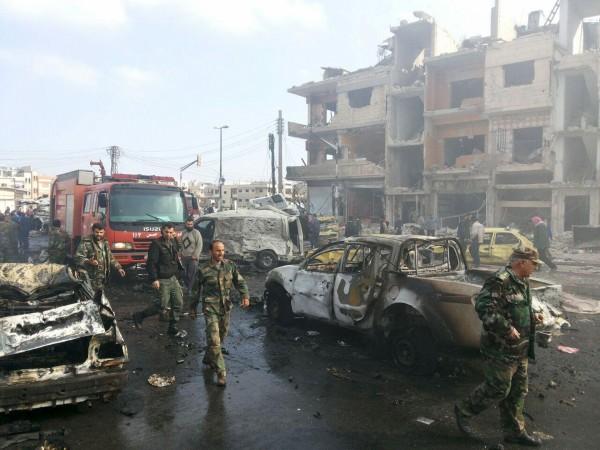
The Islamic State group, also referred to as ISIS, used components produced or sold by 51 companies in 20 countries, including India, Turkey and also the United States, to manufacture improvised explosive devices (IEDs), which it used against civilians as well as armed forces in Iraq and Syria. Conflict Armament Research (CAR) released a report highlighting the supply chain of components to ISIS after a 20-month study.
While most of these components, which include aluminium paste, urea, detonators and detonating cords as well as mobile phones, were from Iraqi and Turkish companies, seven Indian companies also featured on the list. Many of these components are used in commercial activities, such as mining.
The supply chain of detonating cords and detonators was traced to Indian companies such as IDEAL Industrial Explosives, Rajasthan Explosives and Chemicals, Solar Industries and Gulf Oil Corporation, which ended up being used by ISIS to make explosives.
CAR clarified the report focused only on the origin of supplies captured from ISIS forces, and that "there is no evidence to suggest, nor does CAR in any respect imply, any direct transfer of goods to IS forces by the countries and companies mentioned in this report.
"All components documented by CAR were legally exported under government-issued licences from India to entities in Lebanon and Turkey," the report said.
The supply of much of the chemical precursors of the explosives, such as aluminium paste and ammonium nitrate, came from Turkey, which CAR referred to as "the most important choke point for components used in the manufacture of IEDs by ISIS forces."
The Islamic State group also used microcontrollers and transistors in their remote-controlled explosive devices, and many of these components were manufactured in companies headquartered in Japan, Switzerland, and the United States. The terror group also used mobile phones to make IEDs, and Nokia Solutions and Networks India featured on the supply chain.
In some cases, the components reached ISIS in under a month from when they were legally supplied to commercial entities, the report said.
Conflict Armament Research, which was mandated by the European Union to investigate the supply chain of weapons to armed groups, said ISIS was manufacturing IEDs on a "quasi-industrial scale."
"These findings support growing international awareness that IS forces in Iraq and Syria are very much self-sustaining — acquiring weapons and strategic goods, such as IED components, locally and with ease," CAR Executive Director James Bevan told Reuters.









!['Had denied Housefull franchise as they wanted me to wear a bikini': Tia Bajpai on turning down bold scripts [Exclusive]](https://data1.ibtimes.co.in/en/full/806605/had-denied-housefull-franchise-they-wanted-me-wear-bikini-tia-bajpai-turning-down-bold.png?w=220&h=138)



